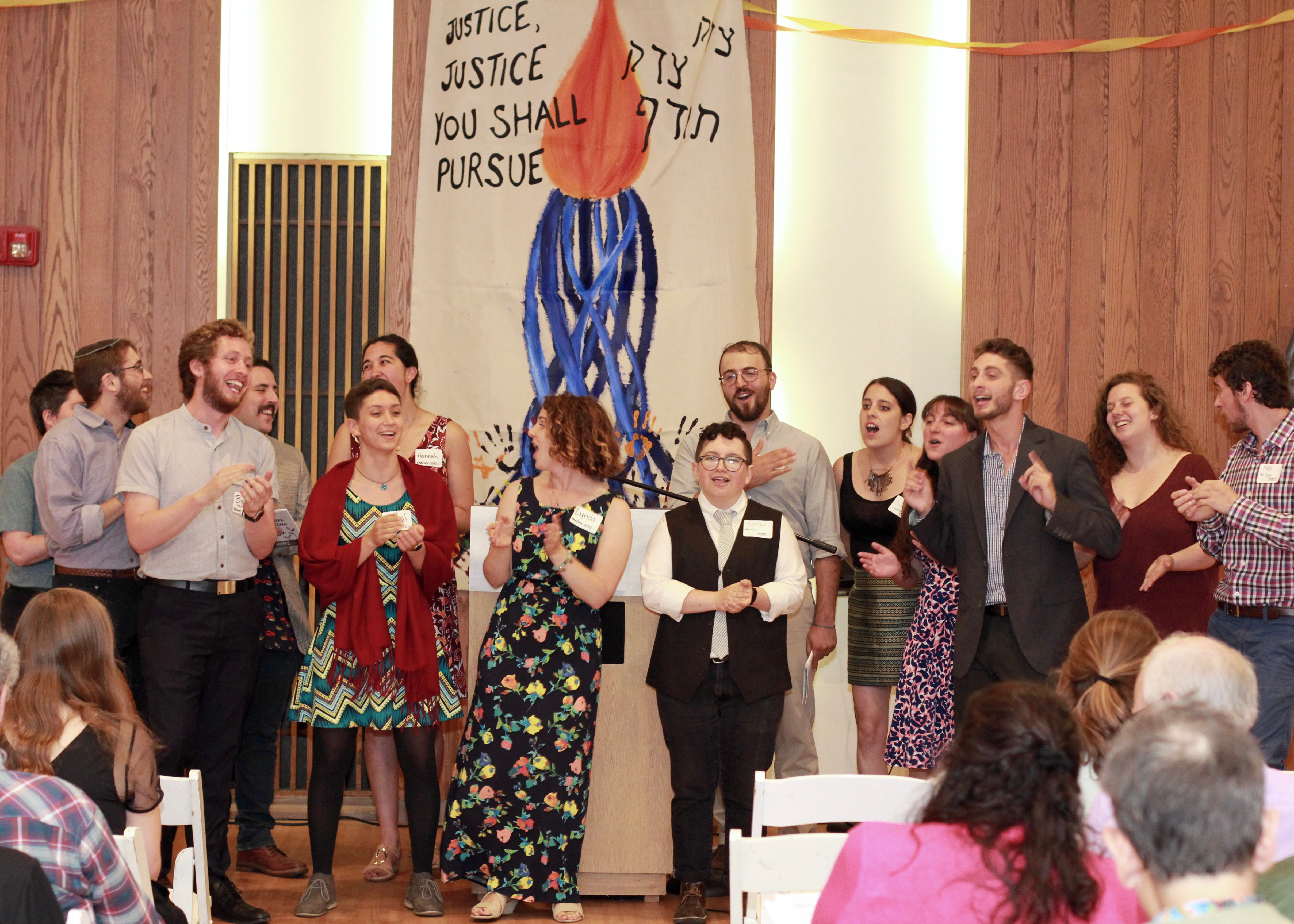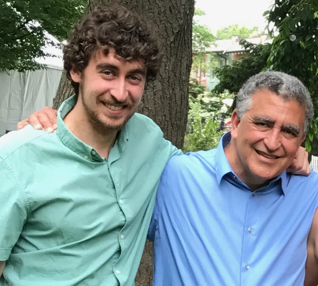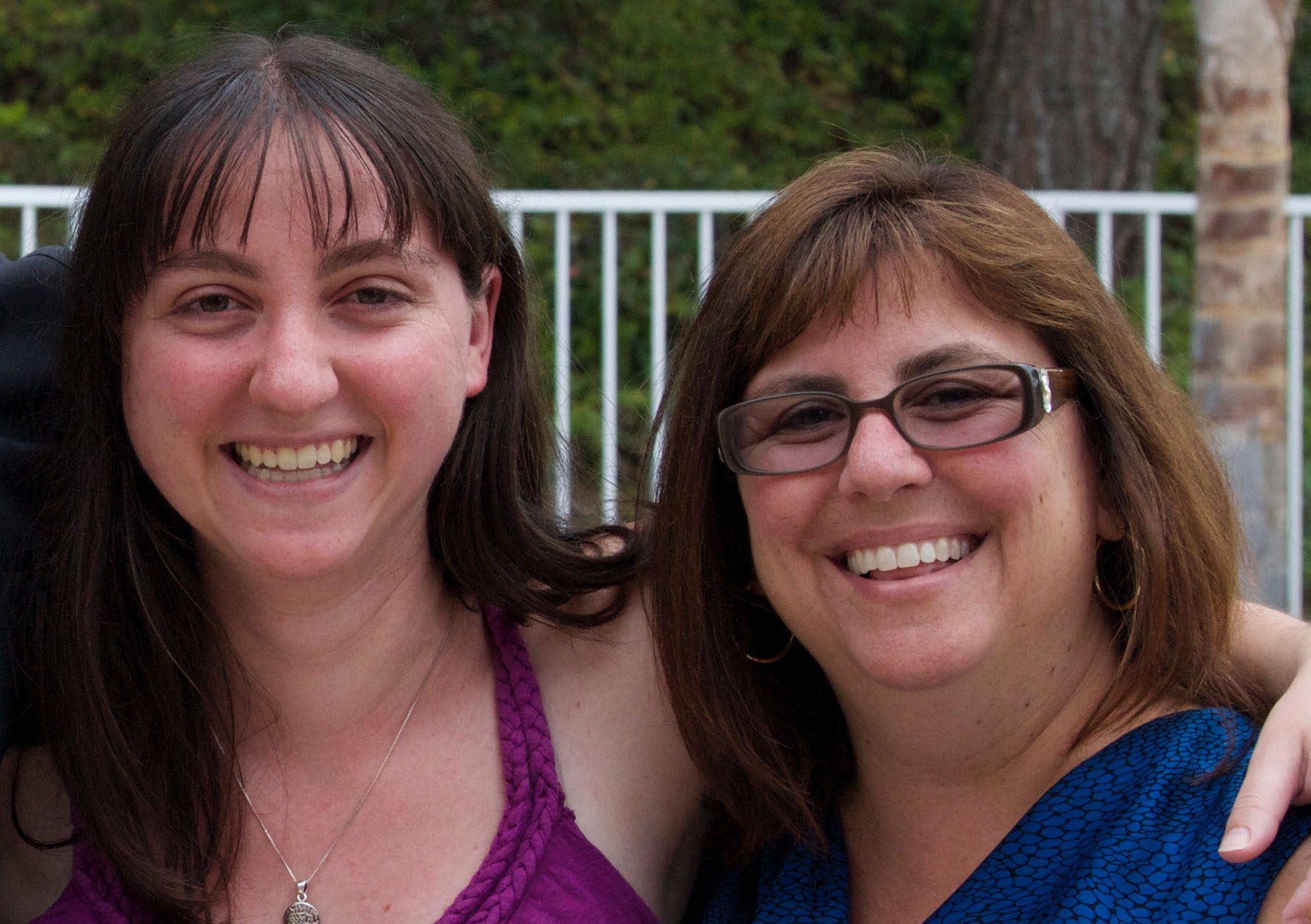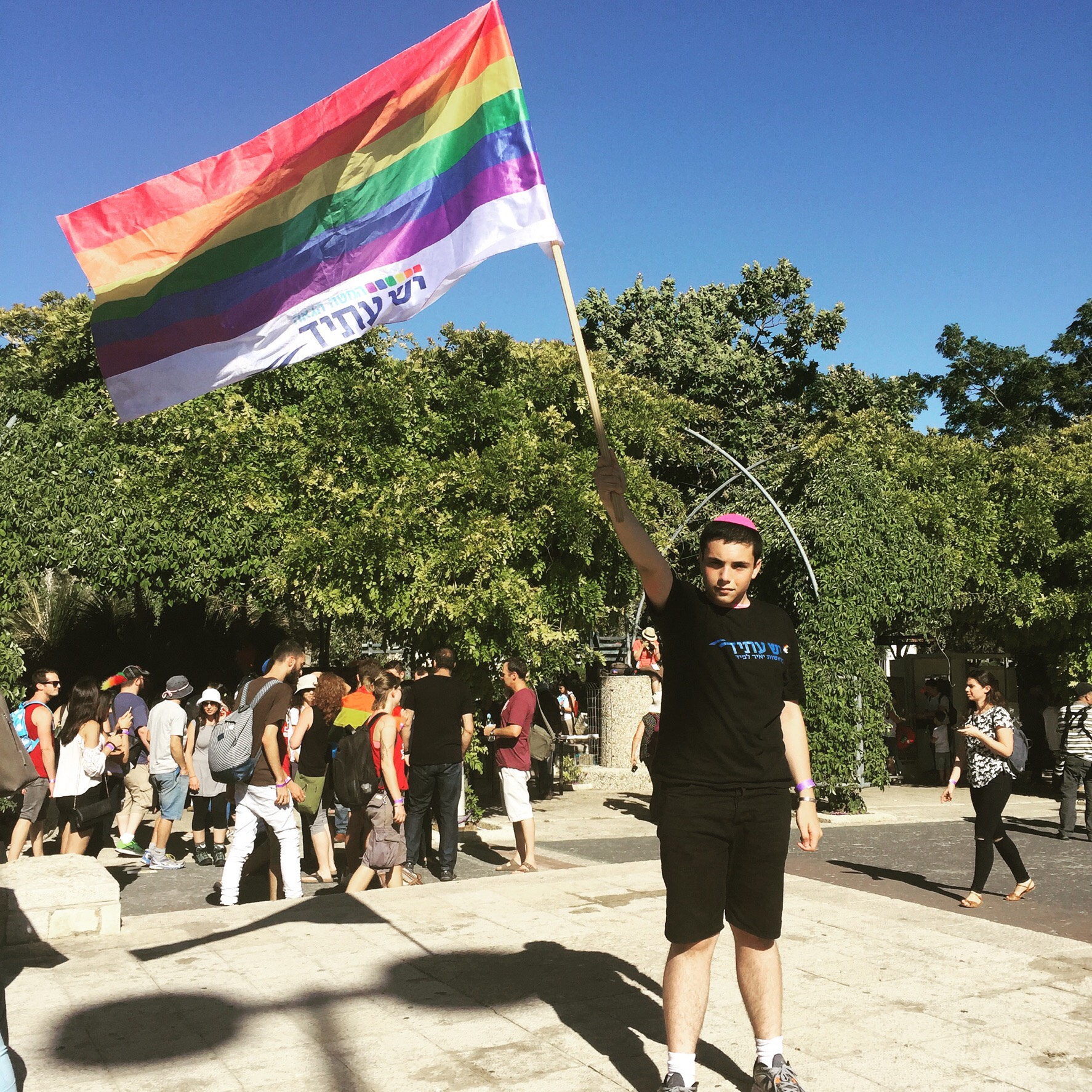By Shaya French
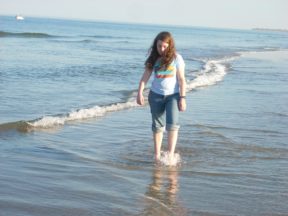
The author at Duxbury Beach, MA, near Pilgrim landing sites.
Shaya French is one of this year’s JOIN fellows and works as a community organizer at the Boston Center for Independent Living (disability advocacy and services). She grew up in Middleboro, MA 17 miles from where the Pilgrims first set foot on Wampanoag land. She comes from an interfaith family (Jewish and Unitarian Universalist) and is loving having JOIN as an opportunity to delve more deeply into her Jewish roots and the Jewish commitment for social change.
Today is a day of celebration. A celebration of being able to gather as a family and share amazing food. It is a celebration of living on land where we are able to freely practice our religion. We are a people who know about celebrations complicated by grief – charoset served with horseradish. So before we commence our many hours of celebration let us take several moments for mourning and truth-telling. For this Thanksgiving is also a symbol of great historical violence that continues to this day. From King Philips’ War to Standing Rock people who are indigenous to these lands have been killed, tortured, poisoned with toxic waste from industry, deprived of resources, and had their children stolen at every turn. In this current moment, this November 23rd 2017, we’ve watched many attempts to tear apart our social safety net, we’ve watched our neighbors being sucked away by ICE officials and violence directed at us and people we love every week. I fear that this presidency will resemble the fascist movement that killed many of my ancestors.
So let us grieve for the injustice done to our people. Let us grieve for the hatred and violence turned upon Jews, socialists, homosexuals and disabled people during the Holocaust.
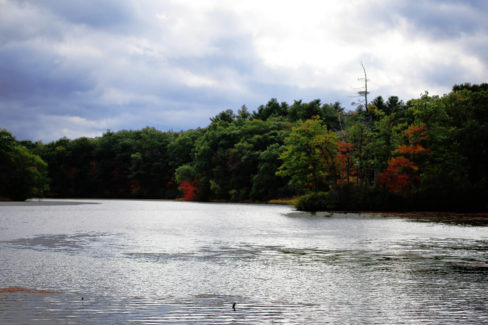 Let us grieve the injustice done to indigenous people who live on the land where we hold this Thanksgiving feast. It was only through the Wampanoag’s support and education that the Pilgrims survived their first bitter winter. It was only because Massasoit saw the Pilgrims as a strategic ally in the Wampanoag’s conflicts against the Narragansetts that we gather here today on this land. For those of us who are perceived by the world as white people, let us take a moment to reflect on how we have benefitted from assimilating to whiteness and aligning ourselves with the Europeans who turned musket onto the children of those who had once been allies. European ancestors who were only able to imagine themselves as free in a new land if they “owned” that land and pushed off and killed its original inhabitants. We have nourished ourselves on stolen land. Nourishing ourselves is not wrong; nourishing ourselves without recognizing the cost that nourishment came, without atoning and properly appreciating all that went into creating our nourishment is wrong.
Let us grieve the injustice done to indigenous people who live on the land where we hold this Thanksgiving feast. It was only through the Wampanoag’s support and education that the Pilgrims survived their first bitter winter. It was only because Massasoit saw the Pilgrims as a strategic ally in the Wampanoag’s conflicts against the Narragansetts that we gather here today on this land. For those of us who are perceived by the world as white people, let us take a moment to reflect on how we have benefitted from assimilating to whiteness and aligning ourselves with the Europeans who turned musket onto the children of those who had once been allies. European ancestors who were only able to imagine themselves as free in a new land if they “owned” that land and pushed off and killed its original inhabitants. We have nourished ourselves on stolen land. Nourishing ourselves is not wrong; nourishing ourselves without recognizing the cost that nourishment came, without atoning and properly appreciating all that went into creating our nourishment is wrong.
Let us be grateful for the land, for the ancestors who have gone before – complicated humans that they were – no more or less complicated than we know ourselves to be. Let us be grateful for the resources we have, for the good food we will eat today, and commit to sharing our food, our community, our love. Let us commit to truth telling and taking responsibility for our actions and our role.
And on this November 23, 2017 in the spirit of appreciation for all the Jewish and Gentile freedom fighters who resisted the Nazis on behalf of our ancestors; let us commit to resist fascism with all of our might.
Let us commit:
We will not trade our safety for the detainment of people who seem different from us. Never again.
We will not fail to speak up when we are given land, money, promotions and power at the cost of our humanity. Never again.
We will not fail to resist when we are told that some people are worth less because of their body, their gender, their politics, their religion or their nationality. Never again.
We will not fail to act when violence is turned against our siblings who share this land with us. Never again.
We will offer sanctuary to those who are being persecuted.
We will have hard conversations with our people with whom we don’t agree. We will speak up when our friends, colleagues and family members talk about how Muslims need to be put on some list; how Black people need to respect authority more; how immigrants need to go back where they came from.
We will witness the pain of others and not jump too fast to solutions when people share with us pain that is deeper than we can know.
We will tell the stories of when we have failed as allies and humans and strive to avoid righteousness.
We will take time to reflect and be strategic before we act, looking to marginalized leadership, and being careful to expend our energy and resources in strategic and impactful ways.
And we will reflect on the point at which if it comes to it we will take up weapons to resist a powerful and persecuting government that is bent on destroying and exporting those who are part of our communities.
In the coming months let us remember what we must do to protect our own humanity and never forgot how many people joined the resistance on our behalf in Nazi Germany.
Today let’s feast and celebrate that we are free and that we can come together. Tomorrow let us recommit ourselves to the struggle needed now more than ever.
The JOIN fellowship has given me a community of resistance fighters to build movements with. Two weeks ago, half of this year’s fellowship turned out in defense of Siham Biya, a Muslim mother, and friend of a member in our fellowship who is being detained by ICE. Who in your community are you building fellowship and resistance with?



